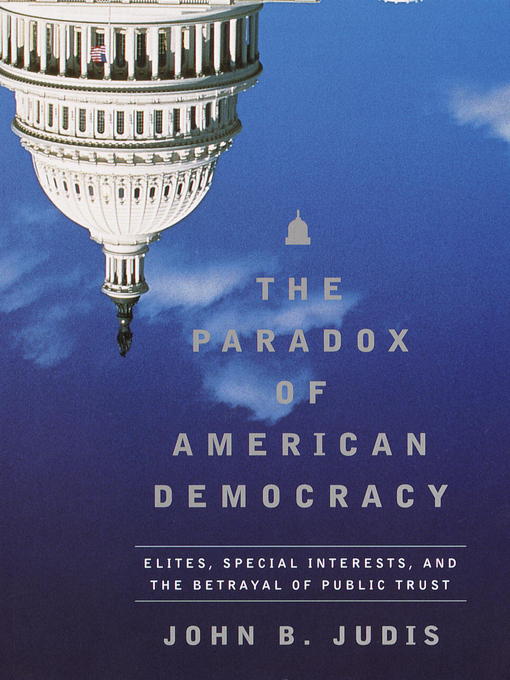
The Paradox of American Democracy
Elites, Special Interests, and the Betrayal of Public Trust
کتاب های مرتبط
- اطلاعات
- نقد و بررسی
- دیدگاه کاربران
نقد و بررسی

January 31, 2000
Judis (William F. Buckley: Patron Saint of the Conservatives), senior editor at the New Republic, presents a familiar diagnosis of American democracy with an interesting twist. He deplores the absence of even a basic conception of the common good in contemporary pluralism. Individuals and organizations enter the political arena to empower and enrich themselves at the expense of others, and advances in information and technology serve to further entrench the influence of money. Indeed, the proliferation of think tanks and lobbying organizations has undermined popular participation in politics rather than enhancing it, says Judis, "making politics the exclusive province of paid hacks and single-issue fanatics." American democracy has had its ups and downs over the years, and Judis is not the first to suggest that we are currently at a low ebb. His unique contribution is the identification of a key variable in the historical cycle: he contends that elites shape the health of political activity. During periods when influential private citizens, especially business leaders, share or at least tolerate a national vision for the country, politics has been a vehicle for improving the lives of citizens, e.g., during the Progressive era and the New Deal. By contrast, he says, today business concern for the country ends at the offices of K Street lobbyists, and "narcissism," "selfish individualism" and "narrow moralism" have left Americans seeking "either wealth or moral perfection" and politicians walking the corridors of the Capitol "with a check... in one hand and a Bible in the other." Judas pulls no punches in making his point that reinvigorating democracy requires a renewed assumption of public responsibility by elites.

January 1, 2000
Is America a place primarily for business or for people? This book explores that question by examining the role that elites have played in 20th-century America. Judis (senior editor, New Republic) considers public-minded elites essential to American democracy. He compares such elites with those of the post-Vietnam era, whose greed was reminiscent of the conservative elites of the 1920s. Judis presents a convincing expos of this greed and the individuals and groups it feeds. Less convincing, however, is the author's assumption that the "masses" need an elite of either leaning. The unintended irony of his analysis is that the rise of the crude, conservative counterelite may be an inevitable reaction to self-righteous, liberal elitism. Judis nonetheless presents a readable account of how greed corrupts American values and contributes to governmental gridlock. Recommended for public and academic libraries.--William D. Pederson, Louisiana State Univ., Shreveport
Copyright 2000 Library Journal, LLC Used with permission.

























دیدگاه کاربران